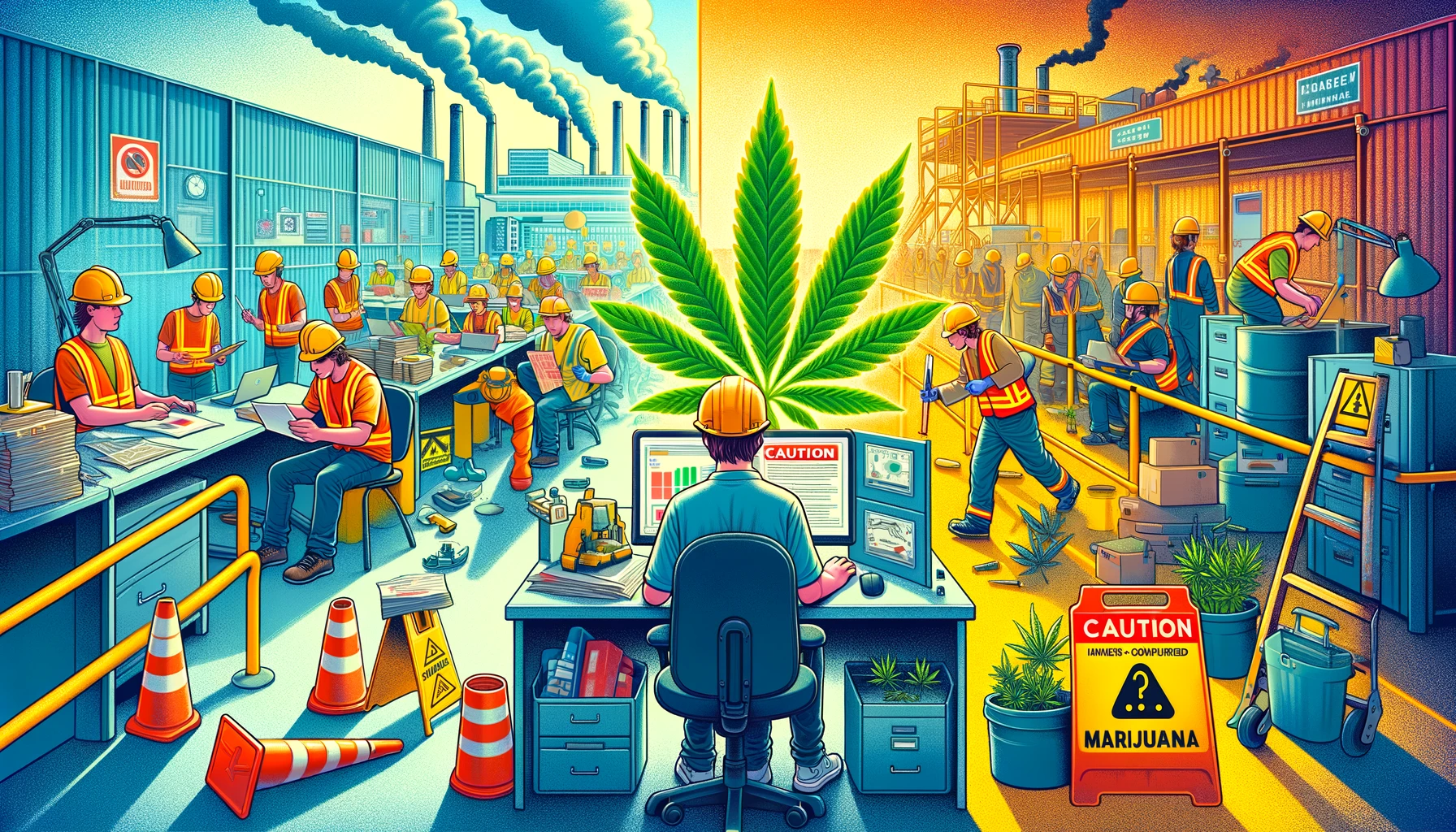In recent years, the legalization of recreational marijuana in America has become a hot topic. While proponents argue for the individual’s right to choose, a new study sheds light on a concerning trend. The legalization of marijuana for recreational use appears to be linked to a significant increase in on-the-job injuries among young workers.
The study, co-led by Dr. Joseph Sabia, chair of the economics department at San Diego State University, delves into the U.S. Bureau of Labor statistics from 2006 through 2020. The findings reveal a startling 10% rise in workplace injuries among individuals aged 20 to 34 years in states where recreational marijuana sales were legalized.
Interestingly, this effect seems to be unique to younger workers. Previous research involving older workers did not demonstrate a similar rise in workplace injuries. On the contrary, the injury rates for older individuals typically decreased after the legalization of recreational marijuana, potentially due to its use for pain management.
The study’s authors provide two possible explanations for the surge in injuries among younger workers.
- They suggest that marijuana use may diminish cognitive functioning, impairing job performance.
- There is a hypothesis that recreational marijuana might act as a gateway to harder drugs, further compromising workplace safety.
Since 2012, 24 states and Washington, D.C., have legalized the possession and sale of small quantities of marijuana for recreational purposes. The study tracked changes in the rate of workplace injuries among young employees before and after the adoption of laws allowing recreational marijuana sales in their respective states.
The findings indicate that two to three years post-adoption, injuries among 20-to-34-year-olds increased significantly. On average, on-the-job injuries rose by 10%, and for those engaged in full-time work, the rise was even more pronounced at 11.9%.
Dr. Sabia’s group suggests that the relaxed legal stance on recreational marijuana may adversely affect younger workers. This aligns with the hypothesis that recreational marijuana impedes cognitive function and overall care, leading to an increase in workplace accidents.
As the debate surrounding marijuana legalization continues, these findings emphasize the importance of understanding the potential consequences on workplace safety, particularly among the younger demographic. It prompts reflection on the need for comprehensive policies and awareness campaigns to address the evolving landscape of recreational drug use and its impact on occupational health.


